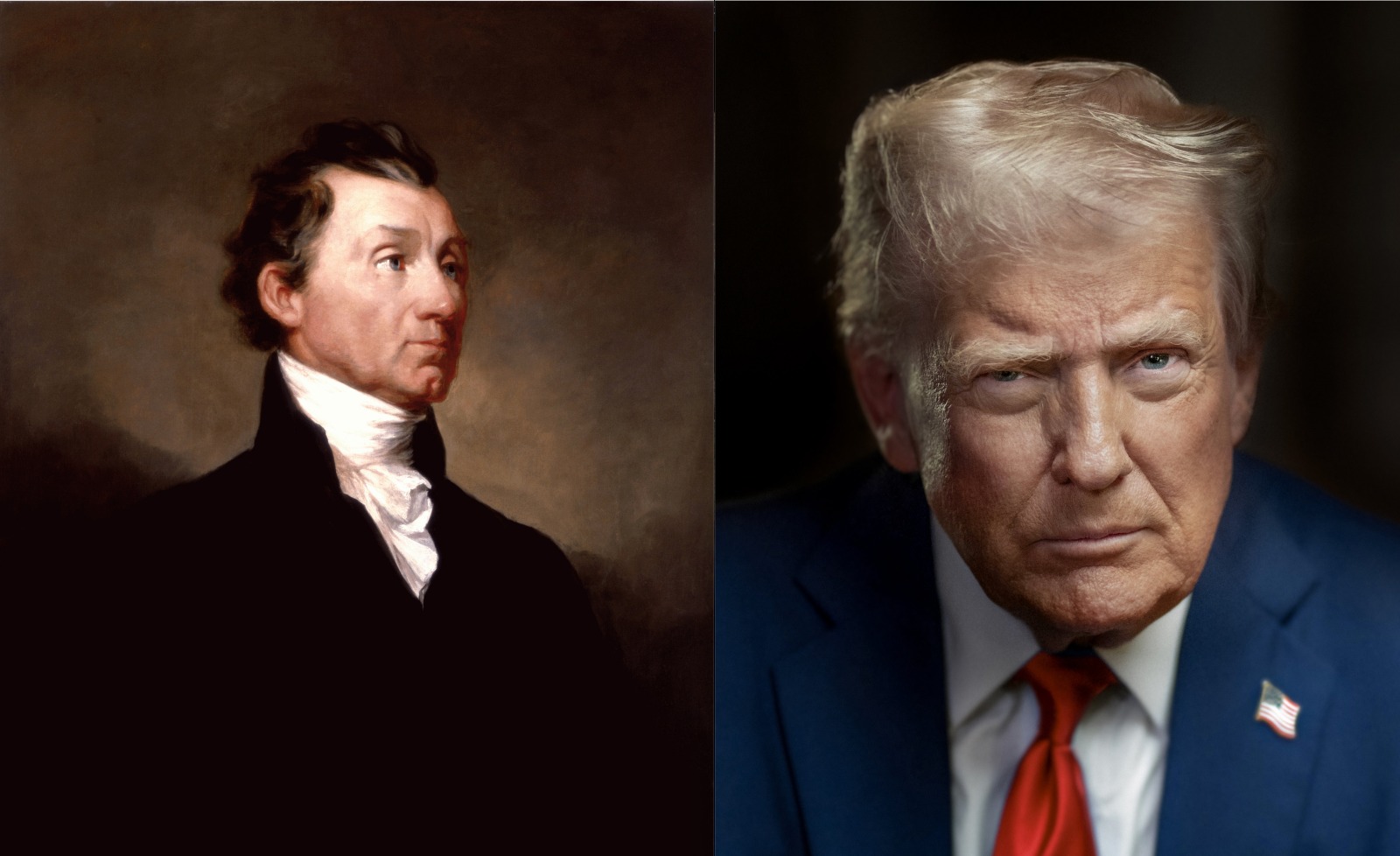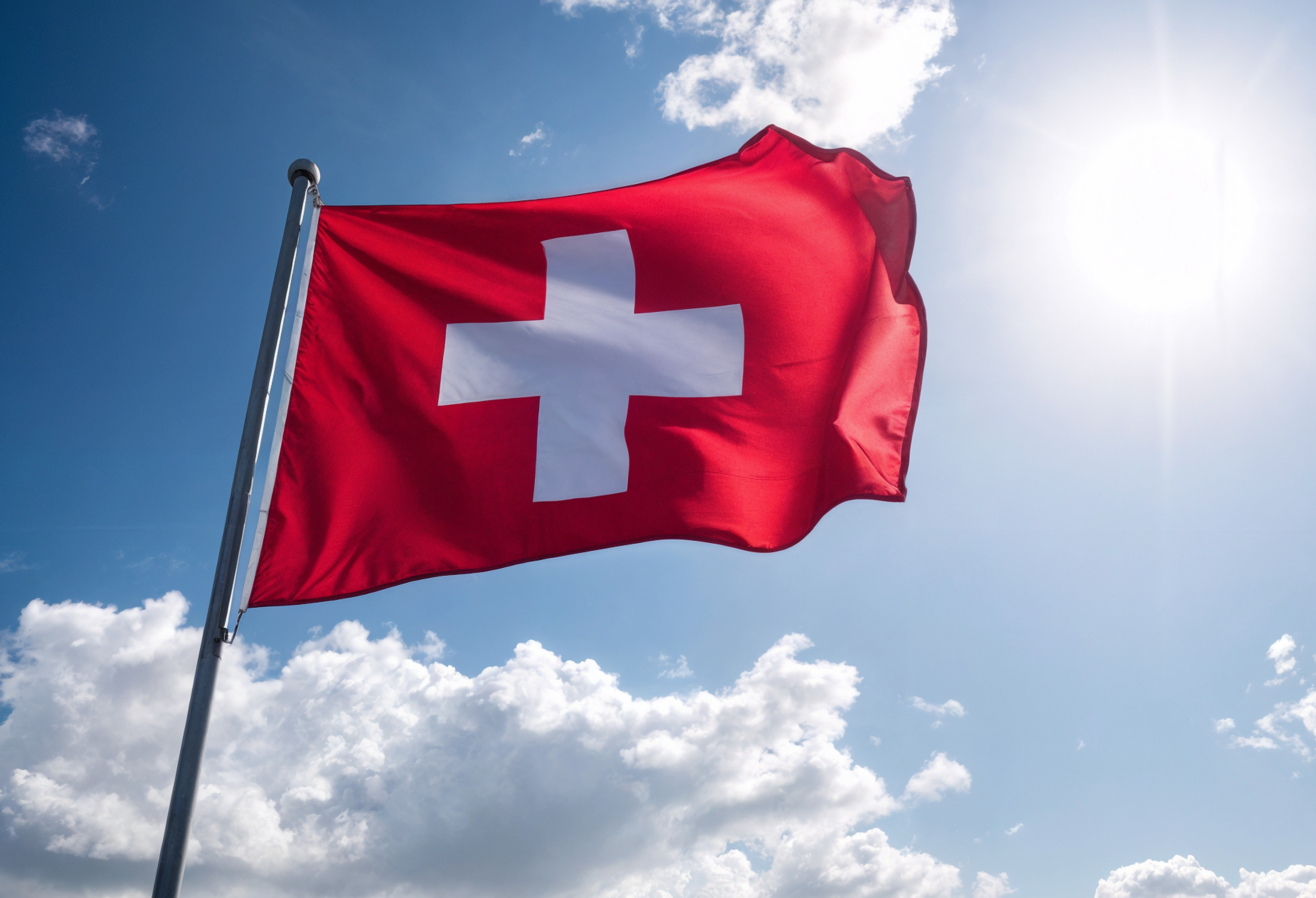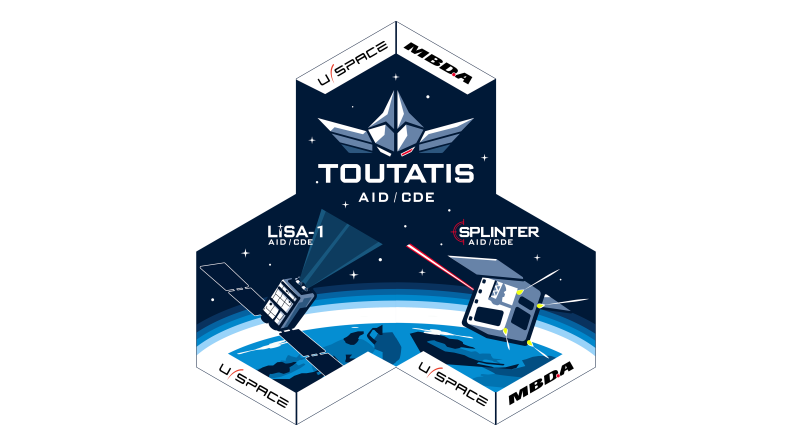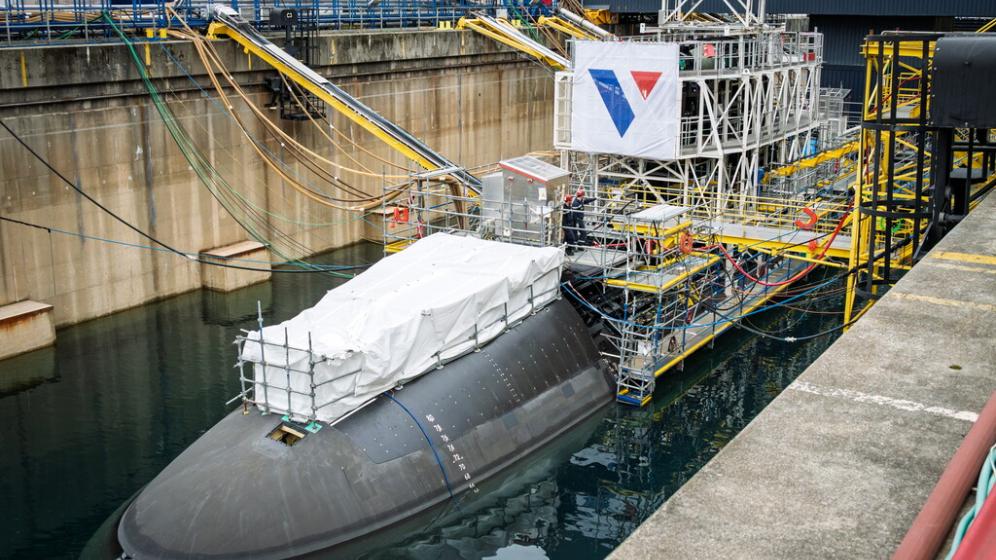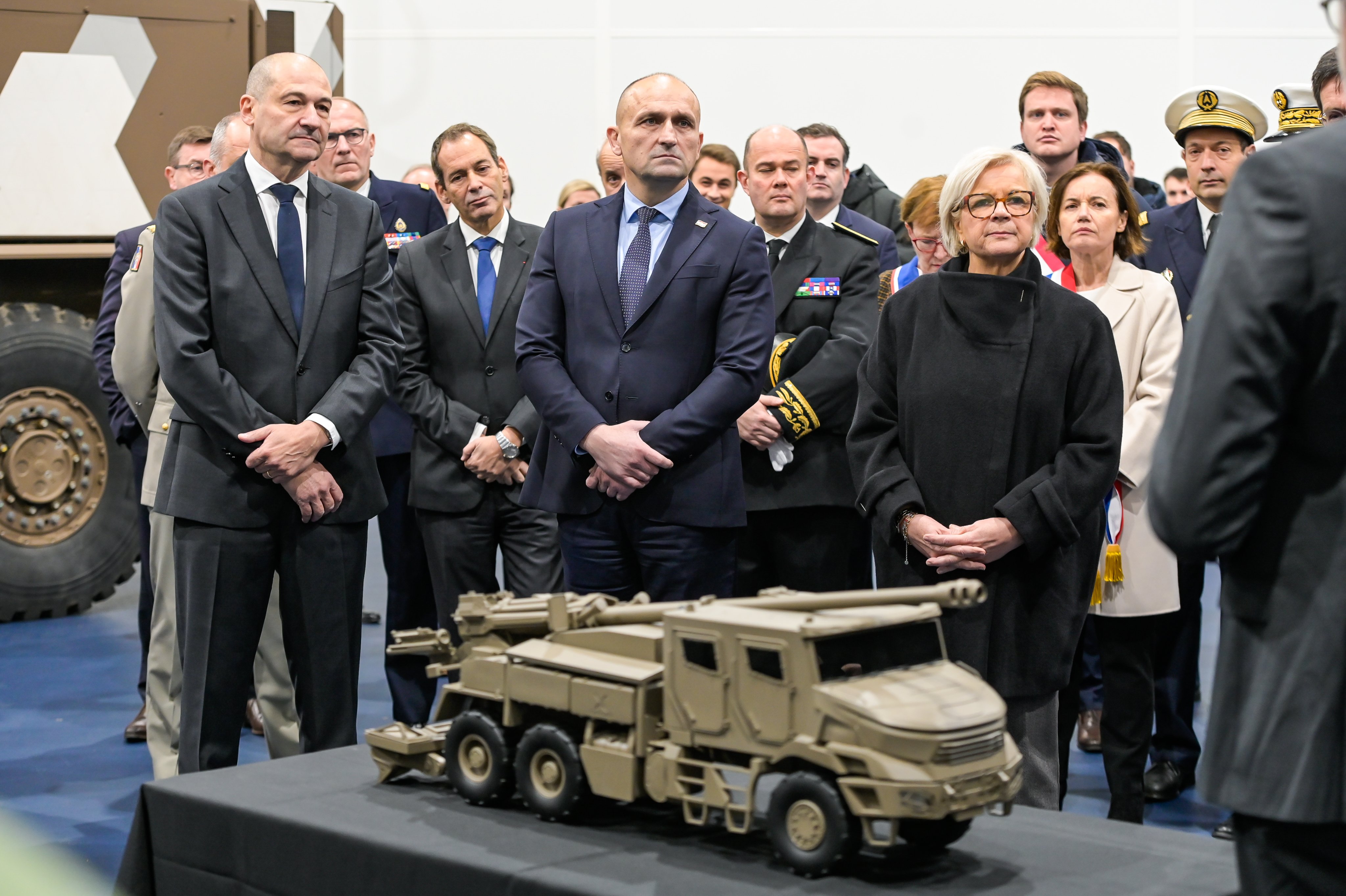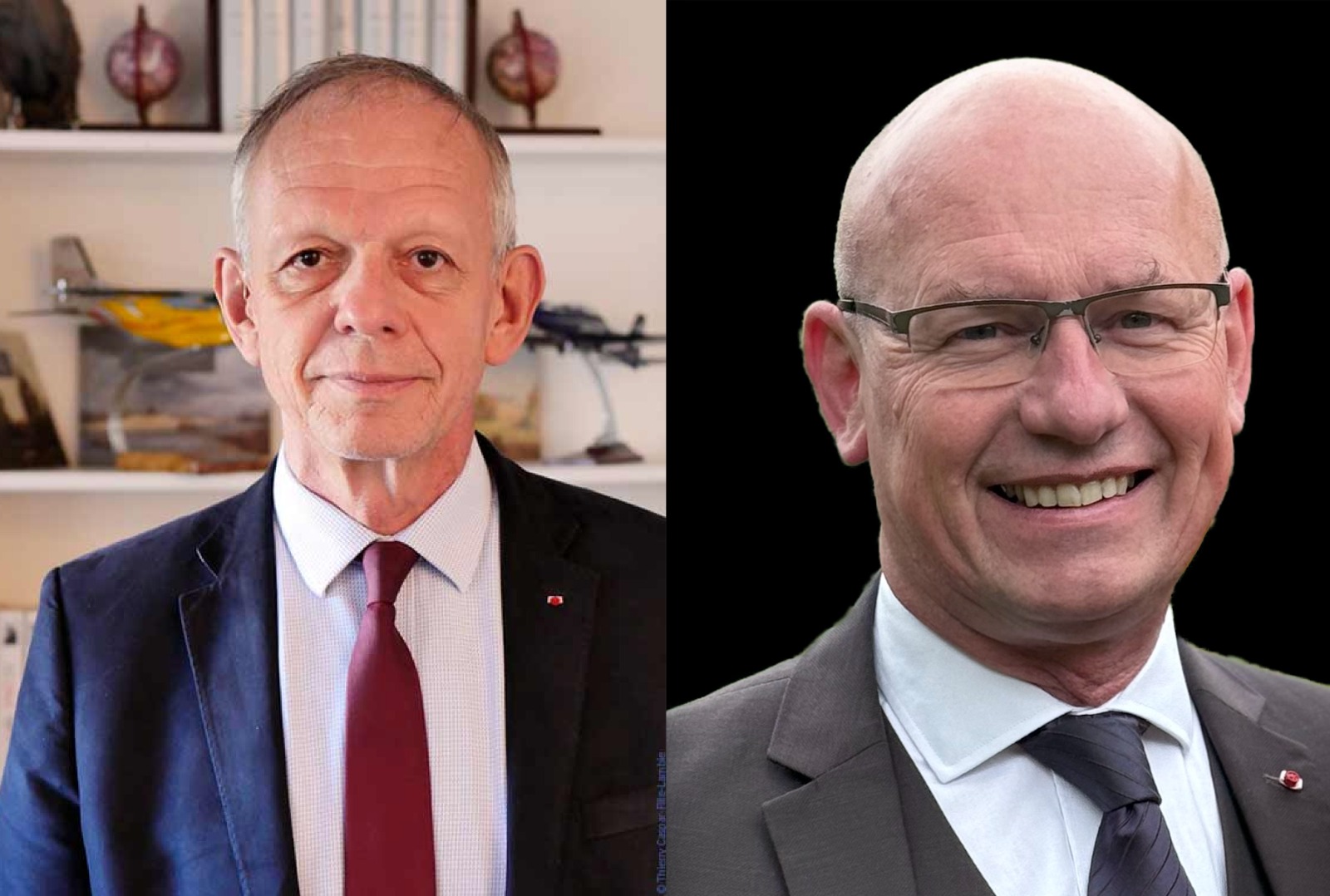Foreword–Speech to the Atlantic Council - The US–French Relationship in a Changing World
Avant-propos - Discours à l’Atlantic Council - The US–French Relationship in a Changing World
Ladies and Gentlemen,
It’s a pleasure to be with you today. Finally, I made it. Last September I was scheduled to talk here, but then, a day before flying, I picked up the US newspapers and they read: “Hurricane Florence hits the East coast of the US”. That was meant to be a discrete visit to DC.
And then it got worse. The Wall Street Journal, I believe, ran a piece that said: “Florence: an emerging threat to the security of the United States”. I started to be seriously worried. On top of this, I had heard that my friend Gavin Williamson from the UK had given a speech at the Atlantic Council just days before I was supposed to speak. The title was something like: “the United States’ most important ally”. Most important ally? Oviously, MI6 had hacked my speech! Clearly, I had to postpone my trip.
But here I am today, no hurricane, no hacking, and it is a great honour to be hosted at the Atlantic Council—I’d like to thank the president of Atlantic Council. This is a remarkable institution. You have world class research—we support it and plan to deepen our cooperation. Someone from my team will even join the Atlantic Council later this summer. You also have an impressive record of speakers here, and it is hard for anyone to take up the challenge. But I will try. And today, I’ll endeavour to talk to you about America’s most effective ally. About our alliance, about how we make each other stronger. And about why this alliance is more important than ever, given the way our world is changing.
In just three days, it will be officially spring. And with spring, the eternal return of that pale sun on the hills of Normandy. On its impeccable lawns. Its forests of white crosses. On these names of glorious Americans fallen for our freedom. On these monuments to friendship and sacrifice that will long outlast us.
America is our ally, in the deepest sense of this word. America has been our fortress in the worst hours of last century. Twice, for World War One and then World war two and the cold war, the US has broken its long standing posture of not entangling its “peace and prosperity in the toils of European ambition, rivalship, interest, humor, or caprice”, as George Washington put it in his farewell address.
But on these occasions, we should be reminded, Europe was not only a place of humor and caprice: it was also the playground of a major strategic rivalry involving the US: against Germany and allies, then against the Soviet Union. Now that the strategic rivalry is moving to Asia, and Europe is no longer its main playground, a question mark has emerged. It is not discouraged by the current atmosphere of withdrawal: withdrawal from battlefields, from treaties, from trade pacts, from all this web of bonds whose collective meaning is deeper than the individual benefits generated by each.
Now, as far as France is concerned, we believe in facts. And thus far, facts speak of the incredible US commitment to European security. Congress has appropriated billions of dollars for the European deterrence initiative. There are thousands of US troops in a fair number of European countries. The US has supported the so-called enhanced Forward Presence, as part of NATO’s deterrence posture in the East. And all these facts have a theory, namely the National Defense strategy, which is unequivocal in its support to Europe.
We therefore have a thousand reasons to say: US, thank you. And France, maybe more so than many others. We have an excellent bilateral relation with the US. The US is supporting us in Africa, in the Near East. Without the US, our ability to defeat terrorism and protect our security would be significantly diminished.
But what Europeans are worried about is this: will the US commitment be perennial? Should we assume that it will go on as was the case in the past 70 years? The Europeans look at recent events and they see that Europe’s security environment has been sorely tested. In 2008, Georgia was torn to pieces. In 2014, it was Ukraine’s turn. So when the Europeans heard, this July at NATO, that unless their defence expenses moved to 2% GDP, the US would “do its own thing”, they were not reassured. They started to pause, and wonder if the unthinkable might be slowly happening.
As a consequence, they have started to prepare, just in case. The military always prepare. They have started to look honestly at what they would be really able to do if left on their own. Yes, the Europeans have made a lot of progress recently in addressing their shortfalls. European defense expenses have been rising since 2015, after a 25-year decrease following the end of the Cold War. We have come up with a European defence fund, a structured cooperation mechanism. Many fellow European countries are launching large-scale military procurement programmes.
But for all this progress, the reality still remains unflattering. If you put together the US and Europe, and you will see that the US has 71% of surveillance aircraft, 72% of attack helicopters, 81% of strategic transport, 91% of air tankers, 92% of MALE and HALE UAVs, 100% of strategic bombers and ballistic missile advance alert systems.
The Europeans have a hell of a homework in front of them if they want to stand on their two feet and really share the burden with America. And France wants to be at the forefront of this effort.
Yes, the Europeans need to address their capability shortfalls, one by one. Especially concerning the key enablers: strategic transport, ISR, air tankers, cruise missiles. For this, we fully support the US insistence on the 2%. President Macron has even suggested recently that the Europeans might enshrine this objective in a Treaty.
The Europeans also need to consolidate their defence industry. They have 20 different types of combat aircraft while the US has only 6. That is a serious distraction of resources and a limit on interoperability. With Germany, for instance, we have decided to build together the future European battle tank, and the future European combat aircraft system. We should support every effort to develop European solutions wherever possible. The European Defense Fund should support that.
Sometimes I hear people say it is protectionism. I say: think again. Belgium buys F35. Sweden buys Patriot. Poland buys Himars. Europe has the single most open arms market. I am personally more concerned at the notion that the strength of NATO’s solidarity might be made conditional on allies buying this or that equipment. The alliance should be unconditional, otherwise it is not an alliance. NATO’s solidarity clause is called article V, not article F35.
But back to Europe: we need equipment, but we also need a propensity to use it. Ability will take you only this far if willingness is wanting. France has been campaigning tirelessly for the Europeans to develop a common strategic culture.
There was a debate in 2003 as to whether the Europeans were from Mars or from Venus. Well, France has a new space policy, and as you will see, we are now offering every European country a one-way ticket to Mars.
We must grow the notion that a threat to our fellow Europeans is a threat to each of them, and that we need to step up and help, without waiting for the US to always foot the bill. This is precisely the reason why President Macron recently launched the so-called European Intervention Initiative. The idea is to form a group of more capable and more willing states, that will team up to plan, and one day, conduct, operations together. President Macron is also suggesting to strengthen European solidarity through article 42-7 of the European Union Treaty.
But security is not only a matter of kit or culture, it is also a matter of rules and pacts. The Europeans must also develop their voice as regards Europe’s security architecture. Europeans should not be free riders of their own security. If there are arm control treaties that affect their security, they should be part of the negotiation. They must re-appropriate the field. This is all the more important as the INF Treaty is in trouble, and New Start will expire soon.
All these things sound self-evident, but they aren’t. It is a cultural change that needs time to take hold. France, from that point of view, is in a particular position. We have always had our own path within the Alliance, developing an independent nuclear deterrent, and occasionnally causing some irritation to the US: whether at Suez in 1956, or by exporting the NATO HQ to Brussels in 1966 for example. We have long been the bad boy in NATO meetings for years, while, in practice, being one of the most active allies in the field.
And from this point of view, there are two essential points on which I would like to insist. One, that building a European autonomy should never be seen as a move against the US. And two, that it should certainly not become a reason for the US to be less engaged: quite the contrary.
The US and Europe have more in common than anyone else. We share the same values. We are faced with the same threats, from terror to the resurgence of 19th century-style power politics, China, Russia and the like. We fight the same wars. We have fundamentally the same worldview—although we may have significant nuances on climate, trade, or Iran. NATO was meant, inter alia, to keep the Americans in, and the Russians out. We do not want to reverse the terms of this equation. We want America solidly steeped in NATO. Autonomy should be a variation on friendship.
And European autonomy should not become a cause for the US to be less engaged. I strongly believe that it would not be in the interests of the US to be perceived as less committed to the security of Europe. For a number of reasons:
History, first. Everytime the US has retreated from Europe, threats have come back to haunt the US itself. Just look at what happened in the 20th century.
Reputation, then. If US commitment is perceived as weakened, it will be further tested by adversaries. There was Georgia and there was Ukraine. If we have another Georgia or another Ukraine within NATO, this will not only be a catastrophe in and of itself: it will also signal in the eyes of the outside world a drastic reduction in US power, with many negative consequences above the horizon.
Unity, also. Because if the US is less strong in Europe, adversaries of the US will also try to split Europe and court part or all of Europe against the US. We already see signs of this. Think “Belt and Road” for instance. Europe has its internal issues to deal with, and we don’t want them to be compounded by external attempts to divide us. I believe it would be detrimental to the US if part of Europe was co-opted from outside.
Partnership, too. Because the threats are becoming more varied, and the US will be stronger to face them with Europe rather than despite Europe.
The alliance is not a one-way operation. There is a strong payback for the US, which is not limited to the influence the US derives from its security assistance.
And no area, in my view, exemplifies this better than terrorism.
Seen from a domestic angle, terrorism is the single security issue of greatest concern to French citizens. Like the US, France suffered from terror, with catastrophic attacks on our territory. We are part of that fight. We are, and want to be, a robust presence alongside the US to defeat terror.
After 9/11, our special forces went in with the US into Afghanistan, where we stayed for 11 years, and lost 90 of the nation’s children to the war.
In 2013, when Al Qaeda was about to topple the government of Mali and establish a murderous caliphate in the heart of Africa, France took the lead and intervened, with fantastic US support. We rolled back the terrorists. And to this day, we work to stabilize the region, with 4500 troops in the Sahel, and important results against high-value targets. I believe this difficult work is in the interest of the United States.
In 2014, when the US set up a coalition to defeat Daesh in Iraq, France was among the very first to enlist. We contributed heavily to the fight with guns and planes. Later, as America was contemplating a drawdown from Syria, we have been among the first to argue for maintaining a US force. And today, we are carefully studying the recent US offer to maintain a residual presence, in cooperation with a few partners.
Beyond this case, I have a broader message. A simple message: you can count on us. We will be there. Not only for today’s wars, but also for those of tomorrow. CBRN. Space. Cyber. Hybrid. Information wars.
When Assad used chemical weapons, France and the UK were there with the US to deliver precision strikes on the chemical facilities. We will do it again if necessary. Idleb: take note.
In space, we face similar threats: the development of anti-satellite weapons; or the infamous grazing satellites, one of which I have exposed recently. We must team up against these threats.
Last, a word about disinformation. I am told it comes from a Russian word, dezinformatsiya, who knows why. In any case, this is not a passing fad. It is an enduring feature of future conflict, and we will have to face it together. There are examples every day. Some stooges recently claimed France was involved in a massacre in the Central African Republic. I say: rubbish. Others claimed that the Syrian regime had arrested French military forces. I say: rubbish. This does not apply to theaters of war only. Sometimes even our democracies are at stake. They must be protected. President Macron recently suggested the creation of an Agency to help Europeans shield their elections against outside interference. I don’t need to tell you about the importance of the challenge. And this is only the beginning. We will need to chart this new territory of conflict, where genuine democracies start with a disadvantage: because lying is not a culture of state, and transparency in open societies is a self-enforcing norm in the information age.
On these many challenges, you will find us at your side. But I have talked too much. As we depart from DC tomorrow, I hope to leave you with the impression that France will always do her utmost to be a robust ally against the threats of today and of tomorrow. We will do our best, with the Europeans, to take a larger share of the burden. We will call it autonomy, and we will count on you to hear in this word nothing else than the bonds of a healthy, independent, robust friendship—as befits the relationship between America and her most important ally—or her most effective and certainly her oldest ally.
Thank you.
Washington, le 18 mars 2019
(www.defense.gouv.fr/salle-de-presse/discours/discours-de-florence-parly).


